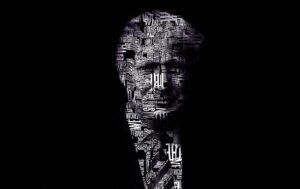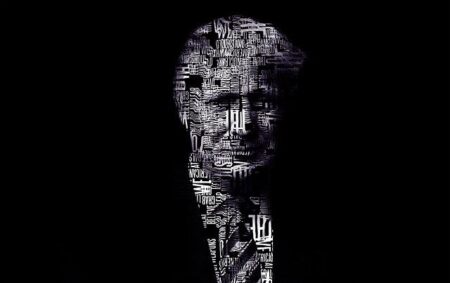US Army Military Parade on Former President TrumpŌĆÖs Birthday: A Controversial Celebration
Controversy Surrounding the Military Parade Scheduled for June 14
The announcement of a large-scale military parade honoring the United States Army on June 14ŌĆöcoinciding with former President Donald TrumpŌĆÖs birthdayŌĆöhas sparked widespread debate across political and social media spheres. Advocates praise the event as a heartfelt tribute to the dedication and sacrifices of military personnel, highlighting the importance of recognizing the armed forcesŌĆÖ contributions. However, detractors express concern that the paradeŌĆÖs timing may be interpreted as a politically motivated gesture, potentially aligning the celebration with TrumpŌĆÖs personal legacy rather than serving as a neutral commemoration.
Central issues fueling the discussion include:
- The traditional scheduling of military observances on days like Armed Forces Day or Veterans Day, rather than dates linked to political figures.
- Apprehensions about the increasing politicization of military ceremonies amid a polarized political environment.
- The diverse political perspectives among veterans and active service members, which may influence their reception of the event.
| Aspect | SupportersŌĆÖ Perspective | OpponentsŌĆÖ Perspective |
|---|---|---|
| Event Date | Symbolic tribute aligning with a notable date | Risk of politicizing military recognition |
| Public Impact | Enhances patriotic sentiment | Potentially deepens societal divisions |
| Veteran Response | Appreciation for recognition | Concerns over political messaging |
Understanding the ParadeŌĆÖs Symbolism and Its Broader Implications
The decision to hold the military parade on the same day as former President TrumpŌĆÖs birthday carries complex symbolism that extends beyond a simple celebration. It acts as a powerful expression of national pride and military prowess, aiming to rally public support around the US ArmyŌĆÖs vital role. The chosen date subtly highlights TrumpŌĆÖs influence on military affairs, reigniting discussions about the interplay between political leadership and military displays. This timing inevitably blurs the lines between honoring service members and making a political statement, intertwining public perception with strategic communication.
The paradeŌĆÖs effects on military relations, both within the United States and internationally, are multifaceted. On the home front, it strengthens morale and fosters a sense of unity among service members and civilians. Globally, it reaffirms AmericaŌĆÖs military commitment, potentially influencing diplomatic relations and signaling resolve to allies and adversaries alike. Key impacts include:
- Boosting domestic morale: Encourages solidarity and public appreciation for the armed forces.
- Political connotations: Connects military heritage with TrumpŌĆÖs political narrative.
- International signaling: Demonstrates US military readiness and commitment on the world stage.
- Strategic messaging: Sends clear cues to global partners and competitors about defense capabilities.
| Element | Symbolism | Effect |
|---|---|---|
| Date Selection | TrumpŌĆÖs Birthday | Political homage and legacy association |
| Visual Presentation | Military formations and hardware | Exhibition of discipline and strength |
| Public Participation | Ceremonial speeches and parades | Enhances civilian-military relations |
Insights from Experts on Political Ramifications and Public Opinion
Political commentators have offered varied perspectives on the paradeŌĆÖs timing. Dr. Elena Martinez, a political science expert at the Institute for Governance Studies, suggests the date may be a strategic effort to reinforce TrumpŌĆÖs image as a champion of military strength, potentially mobilizing his base ahead of future elections. Conversely, other analysts caution that this approach risks deepening the politicization of the military, potentially undermining the eventŌĆÖs primary goal of honoring service members.
Public opinion remains divided, as reflected in a recent nationwide poll:
| Public Sentiment | Percentage |
|---|---|
| View parade timing as patriotic | 38% |
| Consider it politicization of the military | 44% |
| Neutral or no opinion | 18% |
On social media, hashtags such as #HonorOurTroops and #MilitaryParadeDebate have trended, reflecting the polarized national discourse. VeteransŌĆÖ organizations and political commentators alike urge that the event prioritize respectful commemoration over partisan messaging, advocating for unity during this significant occasion.
Strategies to Preserve the ParadeŌĆÖs Nonpartisan Integrity
To uphold the paradeŌĆÖs dignity and ensure it remains a sincere homage to the US ArmyŌĆÖs service and sacrifice, organizers must enforce a strictly apolitical framework. Explicit protocols should prohibit political symbols, slogans, or endorsements from appearing during the event. Additionally, all speakers and participants ought to be carefully screened to prevent any overt political messaging that could detract from the solemnity of the occasion.
Engaging a broad spectrum of the military community is essential to fostering inclusivity and respect. Inviting veterans, active-duty members, and military families from diverse backgrounds can help emphasize shared values and unity. Recommended measures include:
- Establishment of a nonpartisan oversight committee: Comprising military officials and civic leaders without political affiliations to guide planning.
- Adherence to traditional ceremonial protocols: Incorporating flag presentations, moments of silence, and other time-honored honors that transcend political divides.
- Controlled public messaging: Limiting social media and press communications to respectful, apolitical language focused solely on honoring service members.
| Initiative | Objective |
|---|---|
| Nonpartisan Committee | Guarantees impartial event management |
| Standardized Ceremonial Practices | Maintains respectful, traditional honors |
| Communication Controls | Ensures appropriate and respectful public discourse |
Conclusion: Navigating Patriotism and Politics in Military Celebrations
As the United States prepares to stage a grand military parade honoring the Army on a date that coincides with former President Donald TrumpŌĆÖs birthday, the event highlights the complex intersection of national pride and political symbolism. While the organizers stress the paradeŌĆÖs intent to celebrate the armed forcesŌĆÖ valor and history, the chosen timing inevitably invites scrutiny and debate. Observers will be keenly watching how this demonstration of military strength and patriotism is received amid todayŌĆÖs politically charged atmosphere, and whether it can successfully unite rather than divide the nation.







